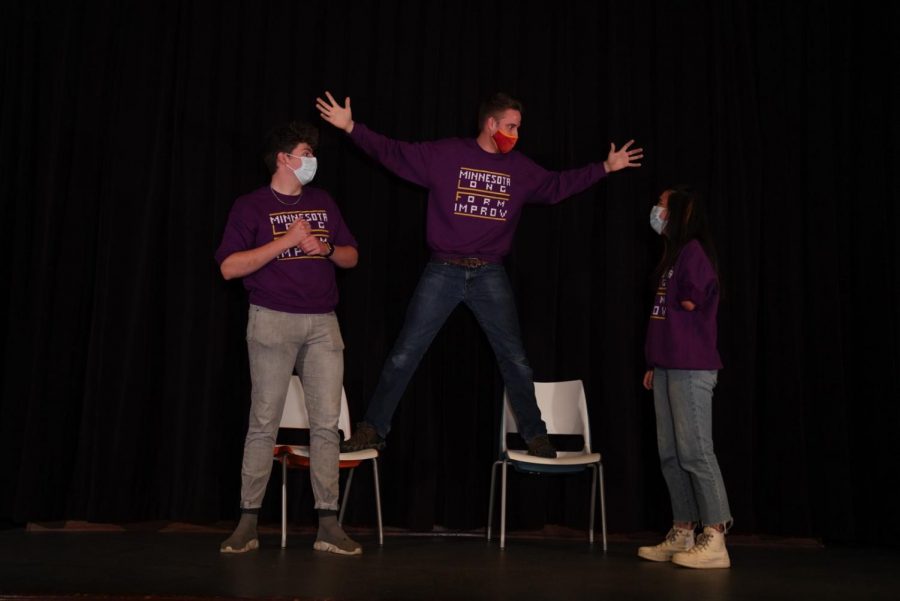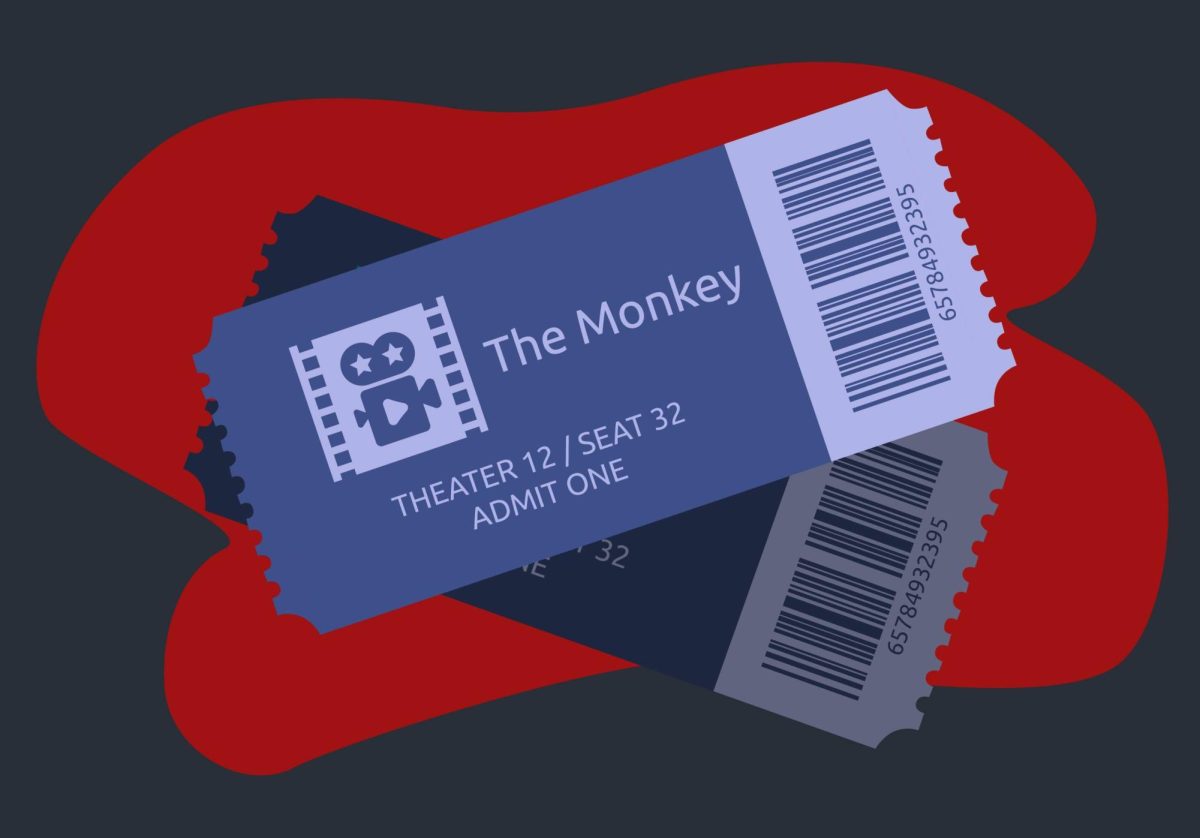Unscripted and unpredictable, the University of Minnesota’s long-form improv troupe brings a unique kind of performance art to the stage.
Minnesota Long-Form Improv (MLFI) fosters relationships, builds trust and creates a unique connection with audience members through the art of theatrical and off-the-cuff comedy.
In long-form improv, everything is made up on the spot and it all starts with a suggestion from the audience. Performers are tasked by using suggestions to create pieces that are 20–30 minutes long, driven by characters and narrative storytelling.
This year, MLFI shows will occur on the first Friday of each month. The possibilities are endless at these shows, as each of the group’s four teams performs their own piece. Every piece is unique, not only in content but also in structure.
“We teach the first-year team a form called expansion tree, which kind of follows the general format of a 20-minute sitcom episode,” said Claire Nelson, a member of the third-year team. “There’s a lot of different ways that you can occupy the 20 minutes, but you’re just telling a narrative.”
Nelson explained that long-form improv differs from other forms of performance art in that it creates a special kind of connection between performers and audience members.
“I think it’s a way more intimate form of performance. There’s a strong relationship between the audience and the people on stage,” they said. “It’s kind of like everyone’s in on an inside joke together.”
“It’s very unique because the same thing isn’t going to happen twice,” added Alison Davis, president of MLFI and member of the third-year team. “It’s just a very fun experience for both the people on the stage and the people in the audience.”
In order for these connections between performers and the audience to be made, intimate bonds must first be created within the team itself — exactly what MLFI works to accomplish. Jack Callahan serves as MLFI’s marketing coordinator, a co-coach of the first-year team and a member of the third-year team. He said a lot of improv is built off of trust, so team bonding games and other activities to get to know each other are often implemented in rehearsals.
“You have to trust that you’re going to put out an idea and the other person will know where you’re wanting to go with it,” he said.
Besides working to cultivate a strong group dynamic, it can be hard to imagine what goes on at a long-form improv rehearsal. How do you prepare when you don’t know what material you will be performing?
Mandy Billups, a third-year team member who also serves on MLFI’s board, said rehearsals often focus on strengthening the “list of ingredients” that makes for good improv, including things like building relationships and making a space seem real.
“We’ve been working a lot recently on physicality in a space, and then we usually practice either parts of a piece or even do full pieces with a coach” she said.
“It’s just like with sports where you’re doing the exercises and routines that you can use in the show,” Callahan added.
Ultimately, doing improv and being a part of MLFI is important to these folks for a variety of reasons. Here’s a closer look at who these team members are off stage and what this group means to them.
Claire Nelson is majoring in communication studies. She was motivated to audition for MLFI when her high school speech coach recommended it, and she ended up finding improv to be a lot less stressful and a lot more refreshing than high school speech and theatre. Being a part of MLFI has introduced them to a lot of people who are now their close friends, and boosted their confidence in their creative, leadership and storytelling abilities. In the future, she wants to pursue a career in visual media.
Alison Davis is a medical laboratory science major. After doing improv all throughout high school, she had her mind set on getting involved with it when she came to the University. She enjoys improv because, unlike STEM-related subjects, there is no right answer to strive for and no one can tell you you’re doing it wrong. She also didn’t know anyone coming into college, so she found that MLFI was a good opportunity to make new friends. Being in MLFI has improved her communication skills, which she said comes in handy during interviews.
Jack Callahan is studying strategic communications and he’s been doing improv since high school at local theaters in Minneapolis. He has always felt safe in the improv community, so he was looking for an organization like MLFI upon coming to college. From being on the team, he’s learned to trust himself more and that failure can be one of life’s best gifts. In the future, he hopes to move to New York or Chicago to pursue a career in advertising while continuing to do improv on the side.
Mandy Billups is studying biomedical engineering. When she came to college, she felt overwhelmed by all the student groups and professional organizations on campus. But she loved theater in high school and had done some improv, so she decided to give MLFI a chance. She’s found the group has been something she can look forward to without having anything to do with the things that stress her out. In the future, she hopes to go to medical school.
Gennie Krause is majoring in cultural studies and comparative literature. She first tried improv at a summer camp and ended up enjoying it. MLFI has become something she wanted to prioritize because she likes it so much. It makes her happy and has introduced her to a lot of new friends.








